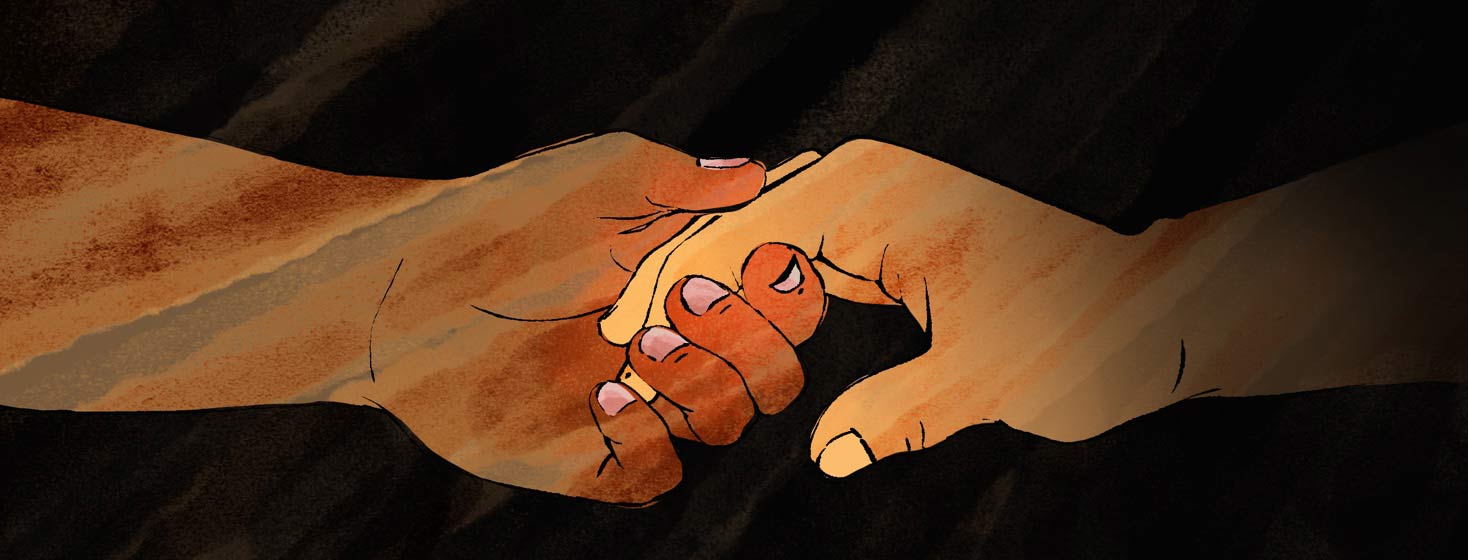Death and Dying: Part 2
Editor's note: This article discusses sensitive topics like suicide. If you or someone you know is in crisis, please contact the 988 Suicide & Crisis Lifeline by dialing 9-8-8 or the Crisis Text Line by texting HOME to 741741.
I shared some of my early experiences with death and dying in part 1 here.
My experiences with those who are at the end of their lives are heart issues. Never have I been able to walk away or ignore those nearing the end of their lives.
Never have I been able to avoid reaching out with a touch. That might be a slight hand squeeze or a light touch to the cheek. Slight because, for some, a touch can be painful.
For others, they might seek a slight hug. Online, I can send gentle hugs.
Learning about death through work
Dying can be a sad and lonely place. Working in two different nursing homes in my life, I learned so much.
The first nursing home was in 1992, which I mentioned in Part 1. The second I worked at was in 2004.
My heart goes out to residents in nursing homes. First are the elderly. I’m over 65 and have been called elderly. That felt a bit unsettling.
Here, we're talking about residents in nursing homes. My heart goes out to those with COPD and other illnesses who go to nursing homes while they are in swing beds, palliative care, or hospice.
What is so sad is that nursing homes are often short-staffed. That means the CNAs (certified nursing assistants) or NA (nursing assistants or nurses aides) need to work quickly to care for the people in their sections. They must complete other tasks in their sections and be finished when their shifts end.
Spending time with those who were dying
I tried to spend a little more time with those who were dying. It was sad that some were alone.
A person might have a DNR (Do Not Resuscitate). That means that we do not perform CPR or other life-saving measures.
During our shifts, some would ask me to visit because they were lonely. Others had specific things to talk about.
I might stop at the end of my shift. If they were awake, we could visit. Otherwise, I would visit on my day off.
A beautiful person, who I will call Rita, was beautiful inside and out. She was admitted to our nursing home soon after she had a stroke. She was unable to move anything except her head.
Rita cried frequently. One day, she said she wanted to die. Her life as a pianist was over. She felt useless and alone.
No, she didn’t want to commit suicide. She just wanted God to take her home.
Her daughters wouldn’t let her talk. They said she had to fight; she had no right to give up.
They seemed to think that giving up emotionally was the same as committing suicide. Being a Christian, she believed suicide was wrong. Talking, she wanted to know if praying for God to take her home was wrong.
We decided to pray, “if it's God’s will, she is ready to go." We also prayed that whatever happens, she finds comfort and peace.
She smiled for the first time since I met her. I told her that she was my new friend.
Meeting with the nursing home manager and nurse on duty, I told them about my discussion with my new friend, Rita, and others. Both said it was fine that I talked with them.
I was concerned that getting personally involved might get hurt or overwhelmed. They were not concerned by that at all.
Leaving my place of employment
That was my last day of work. My back couldn’t handle it.
They offered me physical therapy and a wage increase if I stayed. I rejected it.
I've been through physical therapy a few times and wore back braces. It would bring temporary relief, nothing prolonged.
Much of the problem with low beds was having to get down on the floor to roll the residents, especially those unable to help.
I did the best I could with posture, etc. but often left in tears because of intense pain.
A week or so later, I stopped at the nursing home. My new friend passed away. They said she died peacefully. She was gone.
End-of-life patients need someone to talk to
I visited others as well, so many remembered me and waved. That felt so good. I stayed a couple of hours.
I loved listening to the stories of their early days and more. Most would brighten up, and some looked sad. It gave me peace talking to them and listening to what they had to say.
People, who are at the end of their lives, often want/need someone to talk with, someone who understands. They face death and often wonder if they will wake up the next morning or make it through the day.
People close to them are sometimes uncomfortable with the discussions. That’s why they are welcome and will often bring the discussion to our community.
Sometimes, it can appear as a red flag warning. Please let us know. We have people who will talk with them.
For those who want/need to talk with those who understand, message one of us, and we will have someone contact you.
You might have similar things to talk about. We are here for you.

Join the conversation